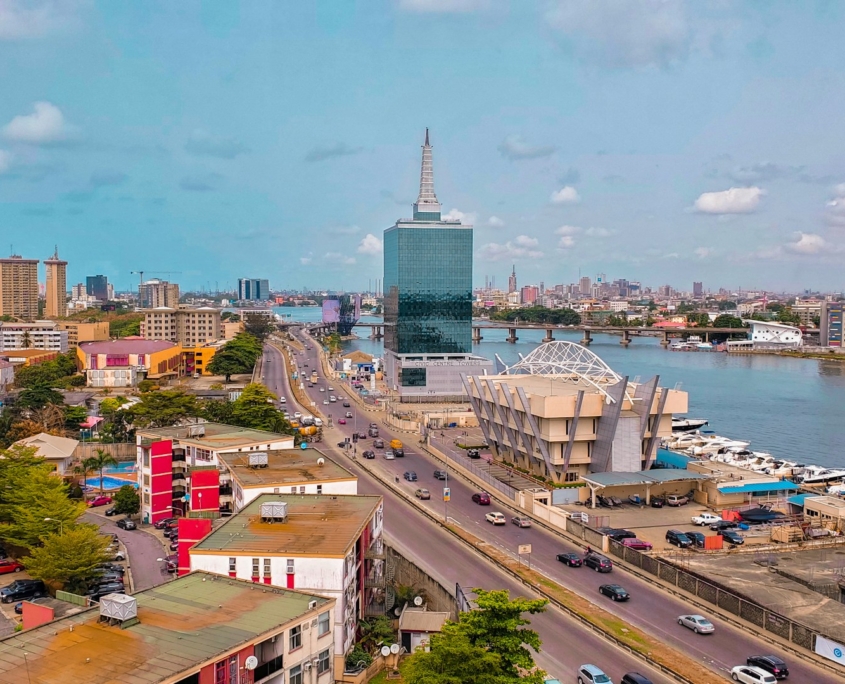Urbanization in Lagos: Impacting Poverty in Nigeria
 In 2024, the population of Lagos state, Nigeria, reached 16,536,018, marking an increase of 590,106 people over the previous year. This number reflects a 3.7% annual growth rate. The process of urbanization in Lagos, significantly increases the disparity between the wealthy and impoverished residents. While some individuals have benefitted from Lagos’ booming economy and accumulated considerable wealth, a large portion of the population live in inadequate conditions in squatter settlements like Makoko. Unfortunately, issues such as overcrowding, lack of basic amenities and poor living conditions affect these slums.
In 2024, the population of Lagos state, Nigeria, reached 16,536,018, marking an increase of 590,106 people over the previous year. This number reflects a 3.7% annual growth rate. The process of urbanization in Lagos, significantly increases the disparity between the wealthy and impoverished residents. While some individuals have benefitted from Lagos’ booming economy and accumulated considerable wealth, a large portion of the population live in inadequate conditions in squatter settlements like Makoko. Unfortunately, issues such as overcrowding, lack of basic amenities and poor living conditions affect these slums.
The Struggles of Slum Dwellers in Makoko
Makoko, a prominent slum in Lagos, stands on stilts above the Lagos lagoon, highlighting its residents’ precarious living situation. Most individuals living in Makoko are employed in the informal economy, earning as little as $1.25 per day, insufficient to cover their basic needs. This extreme poverty perpetuates a cycle of disadvantage and limits opportunities for economic mobility among the residents of Makoko and other similar slums in Lagos.
The Borgen Project spoke with an individual who wishes to remain anonymous for privacy reasons. The young lady, living in one of the slums in Lagos with her three children, stated, “I make nothing less than N2500 a day.” Currently, N2500 is equivalent to $1.86. She further mentioned that she only uses the money to make sure her kids have something to eat. She says, “Every day is a struggle to survive, with no end in sight to our suffering.” Living in the slums traps them in a cycle of poverty and despair.
Urban Challenges: Poverty and Infrastructure
Urbanization, urban poverty and slums are closely linked and present significant challenges for both developed and developing countries. Nigeria, like other developing nations, faces these ongoing challenges, which have a more pronounced impact due to limited resources and rapid population growth in urban areas. Efforts to address these ongoing issues require comprehensive strategies that prioritize sustainable urban development, poverty reduction and job creation initiatives.
Over the past 50 years, rural-urban migration has been the primary driving factor of population growth in Lagos. This is primarily due to the notable advancements in social and economic development, which have fueled uncontrolled population expansion in these urban areas. This rapid growth has led to various challenges, such as strain on existing infrastructure, environmental deterioration, traffic congestion, lack of adequate housing and an increase in crime rates in Nigerian major cities.
Urban poverty drastically undermines urban sustainability in Nigeria, as the poor in cities face social exclusion, unemployment, homelessness, unpaid work, environmental risks and poor health. These hardships drive the proliferation of slums, squatters’ settlements and deteriorating housing, which are becoming permanent fixtures in Nigeria’s major cities.
The Lagos State Urban Development Policy
The Lagos State Urban Development Policy (LSUDP) is a comprehensive and holistic approach to guiding sustainable urban development in Lagos State, Nigeria. The policy is rooted in the recognition of the rapid urbanization and population growth that Lagos State, which addresses significant challenges in infrastructure, housing, transportation and social services
The LSUDP addresses the ongoing challenges by providing a long-term vision and strategic direction for developing Lagos State over the next three decades (2022-2052). The policy outlines key objectives and strategies that promote inclusive growth and development, reduce poverty and inequality, enhance residents’ quality of life and ensure sustainable resource use.
One of the core principles of the LSUDP is to create inclusive cities where all residents, regardless of their socio-economic status, can access basic services, opportunities for economic advancement, and a high quality of life. This includes policies to promote affordable housing, improve access to health care and education, enhance transportation infrastructure and protect the environment.
Furthermore, the LSUDP emphasizes the importance of sound socio-economic foundations, which are essential for sustainable development. This involves fostering economic growth, attracting investments, creating job opportunities and supporting entrepreneurship and innovation. By laying down this strong foundation, the LSUDP aims to ensure that urban development in Lagos State is sustainable, equitable and beneficial for all residents.
The LSUDP represents a strategic roadmap for the future development of Lagos State, with a focus on creating livable, inclusive and prosperous cities that can meet the needs of current and future generations.
Moving Forward
The Lagos State Urban Development Policy promises to transform urban living conditions by addressing critical infrastructure needs and reducing inequality. By prioritizing sustainable growth and inclusive policies, Lagos is poised to enhance the quality of life for all its residents. These ongoing initiatives could help break the cycle of poverty and create a more equitable urban environment in Nigeria’s bustling metropolis.
– Oyinkansola Adewumi
Oyinkansola is based in Denver, CO, USA and focuses on Good News for The Borgen Project.
Photo: Unsplash
